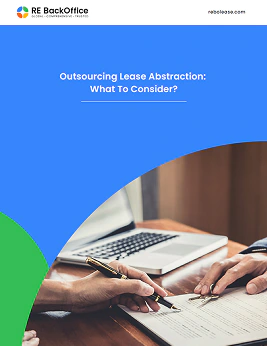
A waiver of subrogation is a contractual provision that modifies the rights of an insurer to pursue subrogation against a party, typically the tenant, in the event of a loss covered under the insurance policy. By agreeing to waive subrogation rights, the insurer forfeits the ability to recover losses from the tenant, even if the tenant's actions or negligence caused the damage. This clause effectively shifts the risk from the tenant's insurer to the landlord, who assumes responsibility for insuring the property against specified risks.
Key Components of a Waiver of Subrogation
Clause
Waiver of subrogation clauses vary in language and scope but generally specify that the tenant's insurance policy must include a waiver of subrogation endorsement in favor of the landlord. This endorsement prevents the tenant's insurer from pursuing recovery against the landlord for losses covered under the policy. The clause typically applies to both property and liability insurance claims, ensuring comprehensive coverage and protection for all parties involved in the lease agreement.
Benefits to Landlords
Landlords often include waiver of subrogation clauses in lease agreements to streamline insurance requirements and minimize potential disputes over liability. By limiting the tenant's insurer's ability to seek reimbursement for losses, landlords can maintain control over insurance claims and coverage terms. Additionally, waiver of subrogation clauses may lead to lower insurance premiums for landlords, as they assume greater responsibility for insuring the property and managing associated risks.
Considerations for Tenants
For tenants, agreeing to a waiver of subrogation clause may impact their insurance coverage and premiums. While the clause limits the tenant's insurer's rights to recover losses from the landlord, it also ensures that the tenant's insurance policy aligns with the landlord's insurance requirements. Tenants should carefully review lease agreements and insurance policies to understand their obligations and negotiate terms that balance risk management with cost considerations.
Legal Framework and Enforcement
The enforceability of waiver of subrogation clauses varies by jurisdiction and may be subject to legal interpretation based on case law and statutory regulations. Courts generally uphold valid waiver of subrogation clauses that are clear, unambiguous, and agreed upon by both parties. Legal counsel familiar with commercial real estate law can provide guidance on drafting and enforcing waiver of subrogation clauses to ensure compliance with local laws and regulations.
Practical Tips for Negotiating Waiver of Subrogation Clauses
Both landlords and tenants should approach lease negotiations with a clear understanding of insurance requirements and risk management strategies. Landlords can enhance lease agreements by clearly defining waiver of subrogation clauses and consulting with legal and insurance professionals to ensure compliance with industry standards and best practices. Tenants, meanwhile, should review lease terms and insurance policies carefully to assess the implications of waiver of subrogation clauses on their coverage and liability exposure.
Future Trends and Considerations
As commercial real estate practices evolve, so too will insurance requirements and lease agreement standards. Future trends may include stricter insurance provisions, enhanced risk management protocols, and regulatory changes that impact waiver of subrogation clauses. Stakeholders in commercial real estate should stay informed about industry developments and adapt lease agreements and insurance policies accordingly to mitigate risks effectively.
Waiver of subrogation clauses play a critical role in shaping insurance dynamics and liability allocation in commercial real estate transactions. By understanding the purpose, implications, and legal considerations of these clauses, landlords and tenants can navigate insurance requirements effectively and mitigate risks associated with property damage and liability claims. Clear communication, thorough due diligence, and professional guidance are essential to drafting and negotiating lease agreements that incorporate waiver of subrogation clauses to protect all parties involved.


